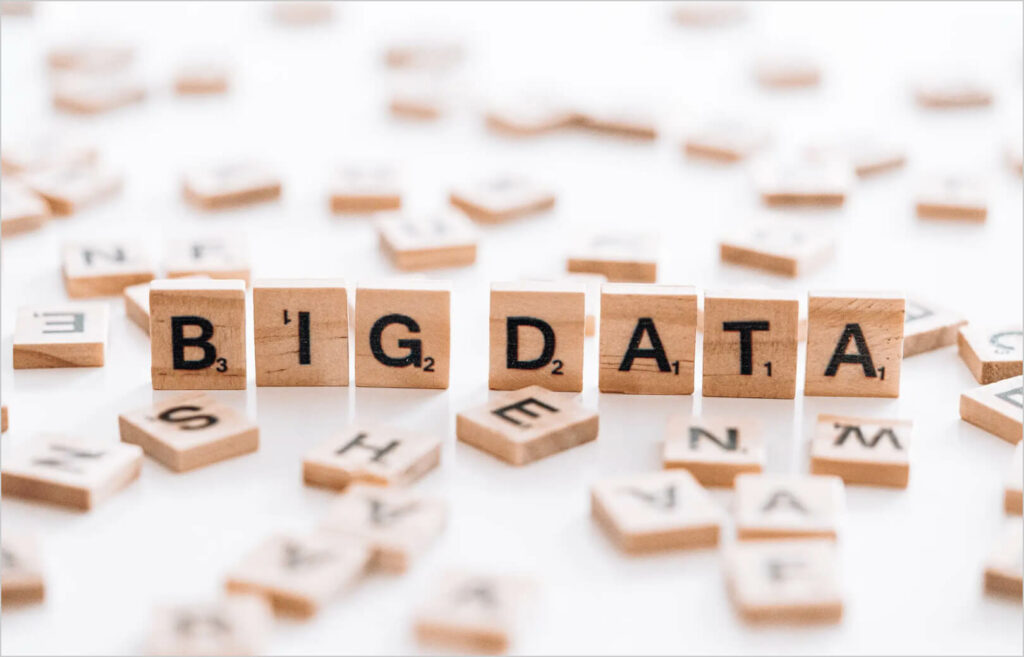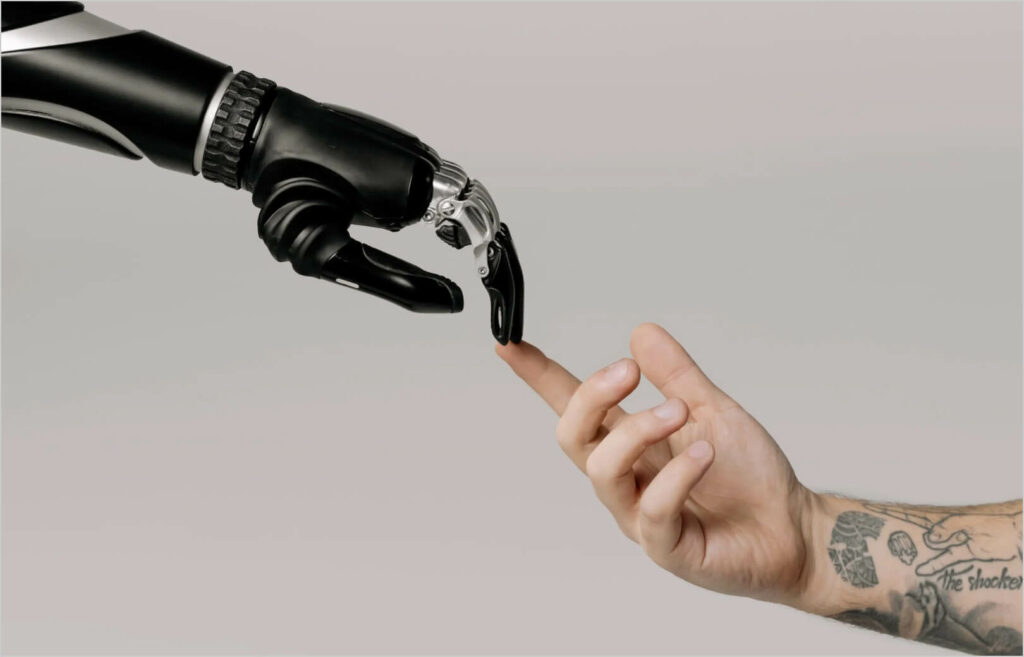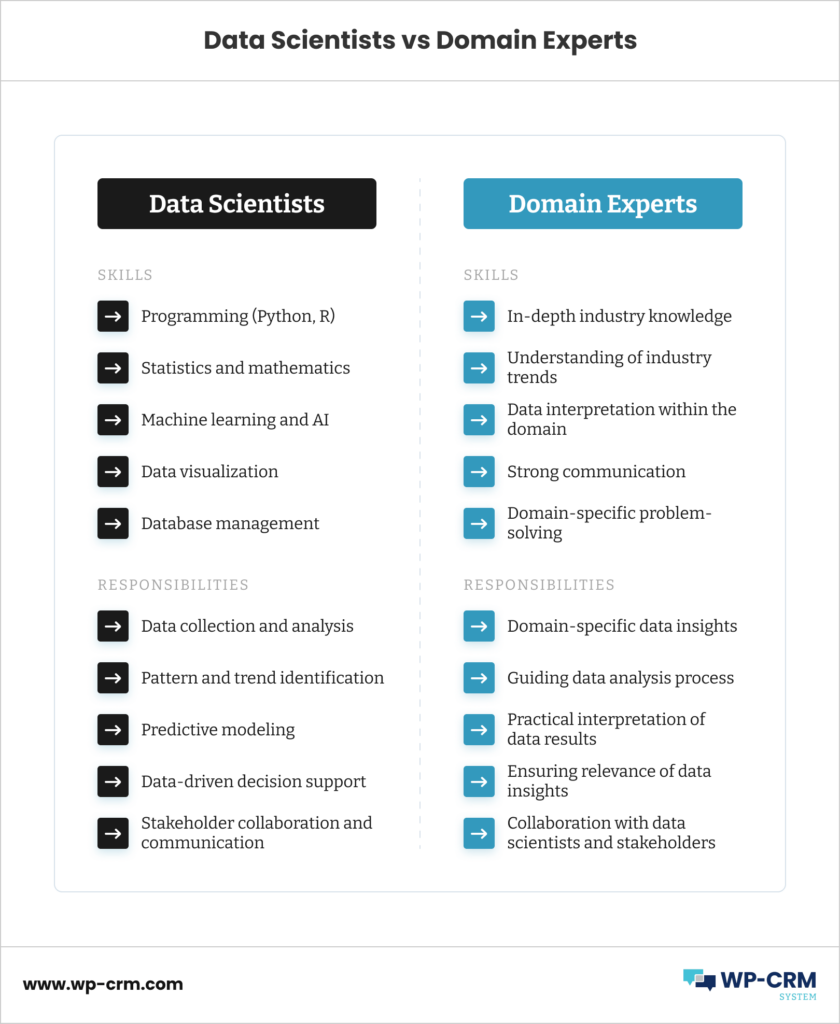Data Scientists vs Domain Experts: Who Will Win At The AI Game?
“Data scientist” was once proclaimed as “the sexiest job of the 21st century”. However, with the evolution of artificial intelligence and machine learning models, the landscape is gradually changing and this lucrative role is slowly giving way to domain experts and AI wranglers. When discussing who will take over though, we need to dive deeper. Data scientists vs domain experts is not really about comparing two distinct occupations.
Rather, to make justice of the AI-powered future of marketing and business ahead of us , we need to first accept that AI is not taking over any role. Data scientists have a complex set of responsibilities such as statistics, machine learning, deep learning, programming and data wrangling. With time, it became harder for one individual to handle all of these different areas at an expert level while keeping soft skills like communication and critical thinking on point.
In order to reflect these alterations in the data science realm to your clients, make sure you communicate the role of automation effectively. This is a breeze if you use an easy-to-implement customer relationship management system such as our plugin WP-CRM. Integrate the tool with your WordPress dashboard without a sweat and manage everything important from one place!
We understand that the potential of automation tools still confuses a lot of people in the business world, so In this article, we will explain what data scientists do, and how AI will affect the role. Let’s dive in, shall we?
What Do Data Scientists Do?

Data scientists play a multifaceted role within an organization. These professionals are often seen as the bridge between the IT and business departments, using their strong mathematical and statistical skills to gather, analyze, and interpret large and complex datasets. Their key responsibilities include identifying patterns and trends in data, generating predictive models, and providing actionable insights to aid strategic decision-making processes.
In addition to these technical skills, data scientists need domain knowledge to understand the business context and make meaningful interpretations of the data. They often work in cross-functional teams, collaborate closely with business stakeholders, and present their findings in a way that can be easily understood by non-technical audiences. It’s a demanding role that requires both technical expertise and business acumen.
How About Domain Experts?
Domain experts, on the other hand, possess an in-depth understanding of a specific industry or field. These professionals have accrued their knowledge through years of experience and are proficient in identifying the nuances and intricacies within their realm of expertise. They are the specialists who understand industry trends, best practices, regulatory requirements, and common challenges better than anyone else.
While domain experts may not possess the technical skills of a data scientist, their understanding of the industry can add significant value to the data analysis process. They can provide critical analytics into the data, guide the analysis process, and help interpret the results in a meaningful and practical way. Their role is crucial in ensuring the relevance and applicability of data-driven insights.
How Has AI Changed The Way We Do Data Science

Automation has brought significant changes to the way we approach data science. With machine learning and deep learning, AI has the ability to learn from data, make predictions, and even make decisions with minimal human intervention.
This has affected the role of data scientists in several ways. First, it has automated many of the time-consuming tasks that data scientists had to perform manually, such as data cleaning and preprocessing. This allows data scientists to focus more on strategic tasks, such as model selection and optimization.
Second, AI has made it possible to handle much larger and more complex datasets than ever before. This has expanded the scope of data science and opened up new opportunities for informed decision making.
However, AI is not without its challenges. The complexity of AI models often makes them difficult to understand and interpret, leading to a need for greater transparency and explainability in AI. Furthermore, the growing reliance on AI has raised ethical and privacy concerns that need to be addressed.
Data Scientists vs Domain Experts: The Verdict

The question of data scientists vs domain experts isn’t about who will take over, but rather how they can complement each other in the AI-driven world of business and marketing. Both roles have their unique strengths and contribute valuable perspectives to the data analysis process.
Data scientists bring their technical expertise, ability to handle large datasets, and skills in predictive modeling. On the other hand, domain experts bring their deep industry knowledge and ability to interpret the data in a practical way.
With the advent of AI, it’s becoming increasingly important for these two roles to collaborate. AI can automate many of the technical tasks, allowing data scientists to focus on strategic decision-making. At the same time, domain experts can help ensure that the AI models are aligned with the business context and that the results are interpreted correctly.
In the end, it’s not about data scientists vs domain experts, but about how these two roles can work together to leverage the power of AI and drive data-driven decision making in business and marketing.
Key Takeaways
The roles of data scientists and domain experts are both integral to the data analysis process, each bringing unique skills and perspectives. Data scientists, with their technical expertise, perform a critical function in managing large data sets and generating predictive models. On the other hand, domain experts employ their deep industry knowledge to provide valuable context to the data, ensuring that the insights generated are relevant and applicable.
In the evolving landscape of AI, the importance of collaboration between these two roles is amplified. As AI automates many technical tasks, data scientists can concentrate more on strategic decision-making, while the role of domain experts becomes pivotal in ensuring AI models align with the business objectives and the results are correctly interpreted. In the realm of AI-driven business and marketing, the focus is not a competition between data scientists and domain experts, but rather how these two distinct roles can harness the power of AI to drive data-driven decision-making.
